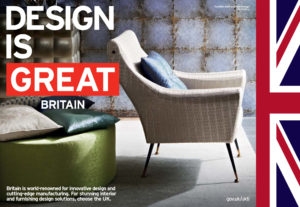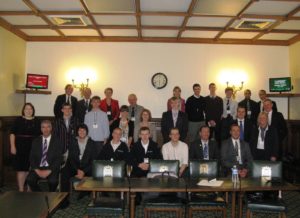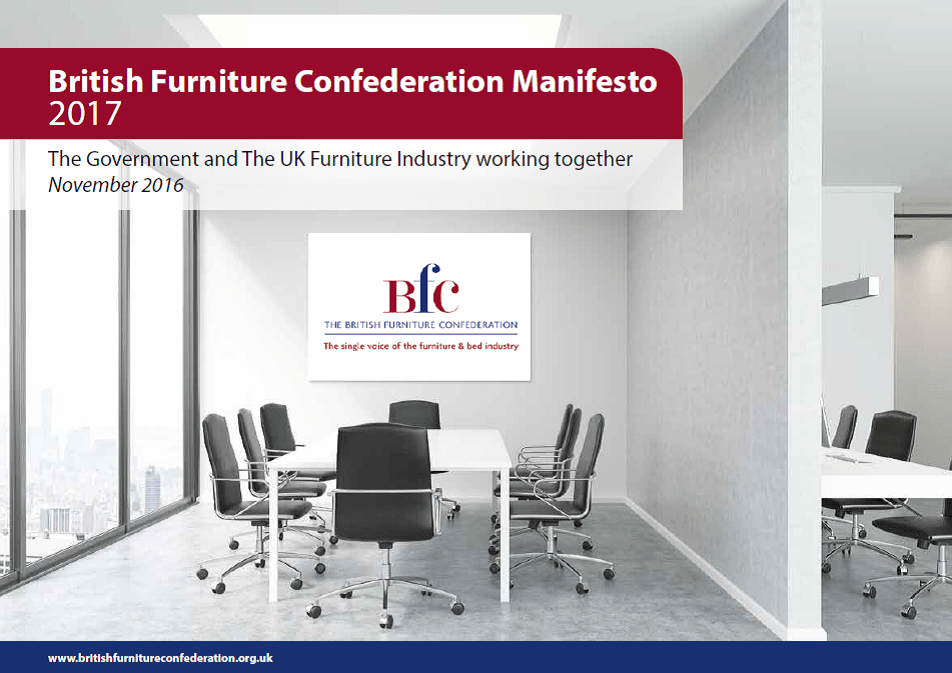What do the different political parties have to offer the furniture industry? The industry’s political lobbying consortium, The British Furniture Confederation (BFC), has compared the three main parties’ manifestos with its own objectives, as published in its own manifesto last October, and is glad to see many of the themes and issues identified featuring centre-stage.
There is broad agreement on the need to retain tariff-free access to the Single Market, to reverse decades of neglecting the UK’s further education system, and to guarantee workers’ rights. Interestingly, no party set out precisely what form of immigration or visa system would be implemented after Brexit. Neither the Conservatives nor Labour mentioned the Circular Economy, unlike the Liberal Democrats. However, the Lib Dems singularly did not make any pledges relating to export support.
Jonathan Hindle, chairman of the BFC said: ‘I was heartened to see that each party has identified the issues that we have been communicating to them: addressing the skills gap and securing the best possible deal on continued access to the EU Single Market. Whilst each party advocates different medicine for these afflictions, I hope we will see real progress in the next five years in preparing the UK for a future outside of the European Union.’

BRITAIN is great international promotion
On trade and export support, both the Conservatives and Labour recognise the need to support SMEs efforts to export. Labour committed to developing an export incentive scheme for SMEs based on international best practice, and ring-fencing Tradeshow Access Programme (TAP) grants to help SMEs reach new customers around the world. The Conservatives pledged to put UK Export Finance at the heart of the UK’s trade promotion proposition, as well as continuing the GREAT Britain campaign. Each policy shows a real understanding that SME exporters will be crucial to maintaining the UK’s reputation for superior quality and innovation.
The BFC was disappointed to read that the Liberal Democrats did not include any significant export support strategies in their manifesto.
After the BFC submitted a response to the Government’s consultation on Industrial Strategy at the start of this year, it is glad to see that further education is firmly on each party’s agenda. Whilst a cultural shift is required to ensure engineering and manufacturing careers are seen as desirable, if successive governments commit to addressing this through the education system, that change will begin to take root. The Conservatives unveiled their plan to establish new institutes of technology, backed by leading employers and linked to leading universities, in every major city in England. They will provide courses at degree level and above, specialising in technical disciplines, such as STEM (Science, Technology, Engineering, Mathematics) , whilst also providing higher-level apprenticeships and bespoke courses for employers.

furniture apprentices and students visit Westminster
Labour went further, committing to free, lifelong education in further education colleges, enabling anyone to re-train at any point in their lives. It also pledged to double the number of completed apprenticeships at NVQ Level 3 by 2022, and consult on introducing incentives for large employers to over-train apprentices to fill skills gaps in the supply chain and the wider sector.
The Liberal Democrat manifesto sought to address the skills gap by expanding higher vocational training, and protecting the availability of arts and creative subjects in the curriculum for younger students.
The BFC call for EU workers’ status to be confirmed as soon as possible was mirrored in each manifesto. But no party set out exactly what their immigration and visa system would look like, with the Conservatives pledging to consult with the Migration Advisory Board, and Labour to consult more widely with industry.
The Liberal Democrats were the only party to engage meaningfully with the issue of the circular economy. They pledged to pass a Zero-Waste Act, including legally binding targets for reducing net consumption of key natural resources, and introducing incentives for businesses to improve resource efficiency. They went further, promising to promote better product design to improve reparability, reuse and recycling, and to establish a statutory waste recycling target of 70% in England and extend separate food waste collections to at least 90% of homes by 2022.
Jonathan Hindle said: ‘I believe it is right that each party is seriously considering their vision for a modern industrial strategy for the United Kingdom. The BFC will work with every party to underline the considerable contribution that the furniture industry makes to UK manufacturing turnover and employment.’

